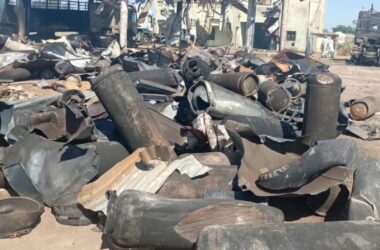Oil and gas expert Ademola Adigun has called on President Bola Tinubu to prioritize reforms that are more supportive of Small and Medium Enterprises (SMEs) to drive economic growth and reduce unemployment. Speaking on Inside Sources with Laolu Akande, Mr. Adigun expressed concern over the widening gap between the rich and poor, the lack of clear direction in the government’s policies, and the devastating impact on small and medium enterprises (SMEs).
Reflecting on the current state of the nation, Mr. Adigun painted a grim picture of life for many Nigerians:
“If I look at the present situation now, it doesn’t seem so [that the country is on the right track]. I have seen bleak Christmases; this seems to be the bleakest we’ve had in many years. You go around Abuja, you go to malls, you go to places of excitement; it’s empty. People are feeling it in their pockets.”
While some sectors appear to thrive, the broader picture is one of economic confusion, exacerbated by erratic policy outcomes.
“We have pockets of good news – the naira falling down, and in the next moment, you have things that you don’t understand which is very confusing. One thing that we have lacked so, so in the leadership is that nobody has told us what the purpose of all the reforms is, what the milestones of the reform are, or what we will look for and how we know when we get there.”
Mr. Adigun was critical of the intent and execution of the administration’s reforms, asserting that they have not been designed to address systemic inequality:
“The reforms are not meant to close the gap [between the rich and the poor]. That is the fundamental failure of the current reforms. There is no design in the reforms to close the gaps. The reforms are designed principally to enhance government revenues, which is not a bad thing, but there is no bridge.”
He cited several examples, such as the removal of fuel subsidies, hikes in electricity tariffs, and the unification of foreign exchange rates, all of which have disproportionately hurt the poor without adequate compensation or support.
“A lot of these reforms have hit us very hard. So far, government hasn’t put out how to break inequality or how to ensure the poor don’t get poorer. A lot of businesses collapsed this year… MSMEs are the engine room of growth.”
Addressing the broader economic framework, Mr. Adigun underscored the neglect of small and medium enterprises (SMEs), which he described as the backbone of job creation.
“Whenever I see our leaders – present and past – jump to Europe and America looking for investors, they don’t bring anything. That doesn’t create any job. The heart of the job industry is SMEs.”
He lamented the increasing pressures on businesses, from high energy costs to relentless tax audits, which are forcing many to close.
Adigun revealed that even supporters of the administration are losing faith.
“When I talk to my friends who were very supportive of the President during his campaigns, a lot of them are angry. One of my friends, a very strong supporter of the APC, said, ‘When you are building a house, your children die because you are building a house. Should your children all die because you are building a house?’”
Responding to President Tinubu’s recent remarks that Nigerians are living a “fake life,” Adigun provided a nuanced interpretation:
“As somebody that supported subsidy removal, I think, in that context, that is not a lie. The fake life means you are taking something from somebody and giving something back to them. Now, you’ve taken from the common man.”
Adigun further emphasized the need for a data-driven approach to governance, lamenting the lack of proper modeling and strategy.
“Another thing they don’t do properly is, they don’t use data. There is no modeling. How much are people earning? Because of costs of energy, half of us have closed down businesses.”









